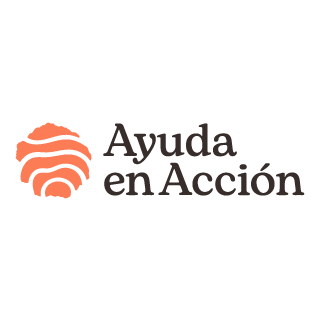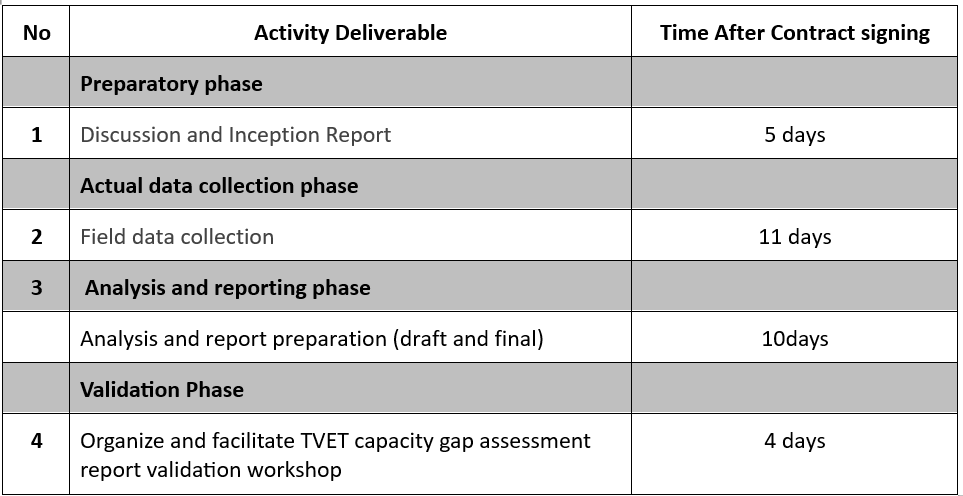

 Location: (Ethiopia)
Location: (Ethiopia) Vacancies: 1
Vacancies: 1 Work modality: On site
Work modality: On siteIntroduction:
Ayuda en Acción (AeA) is an International Non-Governmental Organization founded in 1981 in Spain, dedicated to addressing the structural causes of poverty, inequality, and exclusion by empowering communities to achieve sustainable, dignified livelihoods. Operating globally across 18 countries in Latin America, Asia, Africa, and Europe, including Spain and Portugal, Ayuda en Acción has been active in Ethiopia since 2002 through partnerships supporting development and humanitarian efforts. Following the establishment of its Ethiopia country office in 2018, the organization has expanded its programs to Oromia (Arsi and Borena zones), the South Ethiopia Region (Gamo, Wolaita, Konso and Derashe), and Afar Regional State (Zones 1, 2, and 4). Its country strategy focuses on three pillars: sustainable livelihoods and resilient food systems (emphasizing market development and women/youth employment), quality education and labour market transition, and humanitarian assistance integrated with resilience-building through a nexus approach.
In Afar Regional State, Ayuda en Acción Ethiopia has implemented humanitarian and resilience projects since 2021, collaborating with regional governments and NGO partners. Over the past four years, initiatives have included education in emergencies, protection, food security, WASH, and post-conflict mental health support. These efforts have restored livelihoods, enhanced learning environments, increased girls’ school enrolment, promoted violence-free schools, and improved access to clean water and sanitation. The projects have significantly strengthened community resilience and well-being in one of Ethiopia’s most vulnerable regions.
Project Description:
Funded by the European Union under grant EuropeAid/179149/DD/ACT/ET-1, the three-year ‘The Empowering Futures for Youth and Women beyond Agriculture’ (EMPOWER) project aims to enhance livelihood security for vulnerable women and youth in Ethiopia by strengthening access to inclusive and green job opportunities. Implemented by a consortium led by People in Need (PIN), with co-applicants Ayuda en Acción (AeA) and Development Expertise Center (DEC), the project targets individuals transitioning out of agricultural and agro-pastoral livelihoods, as well as those remaining in the sector. Operating across multiple regions, PIN leads implementation in Oromia, DEC in Tigray, and AeA in conflict and climate-affected areas of Afar National Regional State.
In Afar, Ayuda en Acción manages the EMPOWER project in Chifra woreda (Zone 1), Ewa and Gulina woredas (Zone 4), Abala (Zone 2), and Adadele TVET in Asayta. These areas face recurrent droughts, conflict, and socio-economic instability, which have disrupted traditional livelihoods, pastoral and agro-pastoral based livelihoods. In response to these challenges, the EMPOWER project aims to create sustainable, inclusive, and green job opportunities by strengthening local capacity in key agricultural value chains and improving access to technical and vocational education and training (TVET). However, numerous barriers, including limited access to marketable technical skills, financial services, and employment opportunities, continue to hinder the full participation of youth and women in the labour market and self-employment.
The EMPOWER project directly supports 1,750 individuals, including 950 youth (aged 15-34) and 770 vulnerable women (female-headed households, IDPs, GBV survivors, etc.), organized into 26 SMEs including Saving and Credit Cooperatives in Chifra, Ewa, Gulina and Abala. The project also targets 30 local leaders, 3 TVET institutions, regional government and private sector actors through building their capacities and technical assistance. The project will indirectly reach 584,350 individuals. Key outputs include enhanced capacities for green job transitions, strengthened SME access to markets, and improved public-private coordination to reduce barriers for women in education, employment, and markets. The major outputs of the project includes vulnerable women and youth have enhanced their capacities to transition to green jobs and nonfarm income generating agricultural activities via skills development and transfer of technological innovations; newly established women and youth-led SMEs in green and climate-resilient value chains have strengthened access to markets via enhanced private sector engagement and inclusiveness of local supply chains and; key public and private sector stakeholders have enhanced their coordination and introduced measures that improve women’s economic empowerment and minimize barriers for women to access markets, decent jobs and quality education.
Ayuda en Acción seeks to conduct a comprehensive Capacity Gap Assessment to identify gaps in curriculum relevance with pre-selected value chains and context, institutional capacities, partnership with employers and other support providers, market demands, and green job opportunities and climate resilient practice integration to enhance employability of youth and women.
The findings of the assessment will inform curriculum redesign/design, enable inclusive and market relevant service for youth and women transition to job market and job placement, and work-based learning schemes aligned with priority sectors (solar tech, honey, poultry, dairy, soybeans, livestock fattening, commercial fodder value chains).
This assessment builds on an initial diagnostic assessment conducted during project formulation, which revealed:
The findings will directly inform green job-oriented curriculum development through short-term and strengthen linkages with priority value chains (livestock, poultry, dairy, soybeans, honey) and enablers (solar technologies, digital finance, climate-resilient forage).
The objective of the consultancy service:
This assignment aims to assess capacity gaps in three TVET colleges (Adadale Polytechnic, Asa’le, and Keluwan), the Afar Bureau of Labor and Skills, Woreda Labor and Skills /one stop centers, and private sector actors to inform targeted interventions through skills development for green jobs, sustainable agriculture, and renewable energy sectors, while strengthening institutional capacities to deliver market-aligned, climate-resilient training in the Afar region.
Specific Objectives:
Scope of the Assignment:
The scope of the assignment includes developing an assessment framework and methodology, conducting field visits, and engaging with relevant stakeholders. The consultancy firm will collect and analyze using pre-developed tools by Ayuda en Acción which will be enriched by the consultant. The assignment entails assessing the alignment of TVET curricula with priority value chains and solar energy and regional labor market needs. It will evaluate the incorporation of green practices (e.g., solar tech maintenance, climate-smart agriculture) and propose tailored short-term courses. The scope includes mapping private sector partnerships, analyzing gaps in work-based learning (internships/apprenticeships), and designing collaborative models to bridge industry demands. Gender-responsive strategies will address barriers faced by women and ensure equitable access to green jobs. Institutional capacities of TVET colleges and employment facilitation actors will be reviewed, focusing on staff competencies (technical, pedagogical, digital) and systemic gaps. Findings will be validated through workshops with stakeholders (TVETs, employers, government, NGOs), ensuring actionable recommendations to enhance training relevance, inclusivity, and sustainability while fostering revenue-generating partnerships.
Methodology:
The consultant is expected to apply Ethiopian Technical and vocational Education policy and Strategy (2020) and Ethiopian Technical and Vocational Training (TVT) Green TVT Guideline by the Ministry of Labor and Skills (2023)
The consultant will propose a relevant methodology outlined in detail using general guidelines provided below:
Tasks, deliverables, and responsibilities consultant firm:
The following tasks and deliverables are expected:
1) Discussion with the Ayuda en Acción Team
The Consultant team will engage in a detailed discussion with the Program Director, Project Coordinator, MEL Manager, Area Manager, and other relevant team members to review the details of the Capacity Gap Assessment of TVET Colleges and Employment Facilitation Actors for green job transitions. Following this discussion, the Consultant team will update the Terms of Reference (ToR) for the assessment to include any important elements identified. All relevant information from Ayuda en Acción, as per the discussion, will be incorporated into the inception report.
i. Inception report
The Consultancy team will review relevant documents and prepare an inception report outlining the detailed requirements. The inception report should include a work plan, detailed methodology, and the means of data collection, such as Key Informant Interviews (KIIs), Focus Group Discussions (FGDs), desk reviews, and secondary data collection. The Consultancy team will present the inception report, which must be signed off and validated by Ayuda en Acción before the kickoff.
ii. TVET colleges visit and gap identification
The Consultancy team will visit the three pre-identified TVET colleges in the Afar region and engage with the relevant field staff and other partners to gather the necessary information. Following these visits, discussions will be held with the field staff, partners, and TVET college administrators. The team will then begin data collection using the pre-developed assessment tools.
iii. Gap dentification of Bureau of Labor and Social Affairs (BoLSA), woreda Labor and Skills and One stop center
The Consultancy team will visit the Bureau of Labour and Social Affairs (BoLSA) and the Woreda Labour and Skills offices to collect capacity gap data from BoLSA, Woreda Labour and Skills, Job Creation Councils and one stop center.
iv. Mapping Private Sectors, SMEs, Cooperatives (SACCOs) and Gap Identification
The Consultancy team, in collaboration with Ayuda en Acción, will map Private Sectors, SMEs, and Cooperatives (SACCOs) in the intervention areas and identify potential gaps using pre-developed assessment tools. In addition, the Consultancy team will utilize findings from the inclusive market system Assessment analysis in Afar conducted concurrently by another consultancy firm as input during the mapping and gap identification.
v. Developing and submitting TVET gaps and other employment facilitators’ assessment report
The Consultancy team will prepare a comprehensive assessment report with findings and recommendations, which will be submitted to Ayuda en Acción, along with a detailed presentation. After the field visits and discussions with the program and field staff, the consultant will prepare a work plan that clearly and concisely outlines the process and results of the assessment.
vi. Organize and Facilitate TVET gap assessment validation workshop
After submitting and discussing the comprehensive assessment report with the Ayuda en Acción team, the Consultancy team will organize and facilitate a validation workshop in collaboration with Ayuda en Acción.
vii. Deliverables
The main deliveries of the Capacity Gap Assessment of TVET Colleges and Employment Facilitation Actors include the following:
Responsibilities of Ayuda en Acción Ethiopia:
Guiding principle:
The Consultancy firm should adopt AeA safeguarding and protection policies which will be signed by the selected consultancy firm.
Schedule of Activities / Tasks:
The project is expected to complete the assessment and curriculum revision and development including facilitation of workshop and training within 30 Calander days, see the details in Table-1.
Table-1: Schedule to undertake the tasks

Required Profile:
Presentation of technical and financial proposal:
The consultant is required to submit signed and sealed documents via email given at end of the ToR (method of submission):
Criteria for Selecting the Best Offer:
The selection of the best proposal will be done by using the Combined Scoring method – where the qualifications, relevant experiences and methodology will be weighted a maximum of 70% and combined with the price offer which will be weighted a maximum of 30%. The technical part of the application will be assessed based on previous experience of knowing Afar context and doing similar activities with the previous clients.
The selection process includes shortlisting of candidate’s base based on submitted technical and financial proposal, then after that the Ayuda en Acción will organize the discussion session and the short listed consultancy firm present both their technical and financial proposal and detail approach and methodology for Ayuda en Acción Management and team of experts.
The following technical elements will be considered:
The selection committee will evaluate the proposals based on a best-value determination.
Line of reporting:
The Consultant Firm must report to the contact persons in Ayuda en Acción Ethiopia Program Director as per the schedule.
Terms of Payment:
Payments will be made according to the following schedule.
How to apply:
The Consultant is expected to submit Letter of Interest, along with the scanned stamped copies of technical and financial proposal with the subject line “Ayuda en Accion Capacity Gap Assessment of TVET Colleges and Employment Facilitation Actors for Green Job Transitions in Afar region” directly through (only) the talent clue within 10 (Ten) consecutive days from the advertisement.
Key Contacts:
You may send your questions prior to submission to: Ermiyas Tadesse, Programme Director etadesse@ayudaenaccion.org or Bitsit Endale, Operations Director bendale@ayudaenaccion.org.
In all selection processes, we will consider the criteria of NO discrimination based on sex, race, skin colour, religion, political ideas, social origin, sexual orientation, age, etc., providing a transparent and equal opportunity process for all candidates, as stated in our Code of Conduct. "Treating all people with respect and rejecting any kind of harassment, discrimination, intimidation, exploitation or any other action against Human Rights".
At Ayuda en Acción we have zero tolerance for behavior related to sexual exploitation, sexual abuse, and/or sexual harassment, which is why, in accordance with our Child Protection Policy, we are committed to carrying out a series of checks prior to hiring by requesting information from previous employers through the Misconduct Disclosure Scheme (The Misconduct Disclosure Scheme misconduct-disclosure-scheme.org) no the event that said employers are members of this platform.
In addition, Ayuda en Acción also undertakes to provide the other members of the MDS with the information corresponding to this type of event on employees who have worked for the Organization. Therefore, by submitting this application, the applicant accepts and authorizes the performance of these pre-employment checks in order to continue in the selection process and the conservation of his/her data for subsequent consultation by MDS members.
The information extracted from this application for references will be used in a Private, Confidential and Internal manner and will only be used for the selection processes of Ayuda en Acción in which the candidate has registered.
Therefore, by submitting this application, the applicant accepts and authorizes these checks to be carried out in order to continue in the selection process.
In addition, it will be compulsory to present the "Negative Certification of the Central Registry of Sex Offenders" prior to the incorporation.